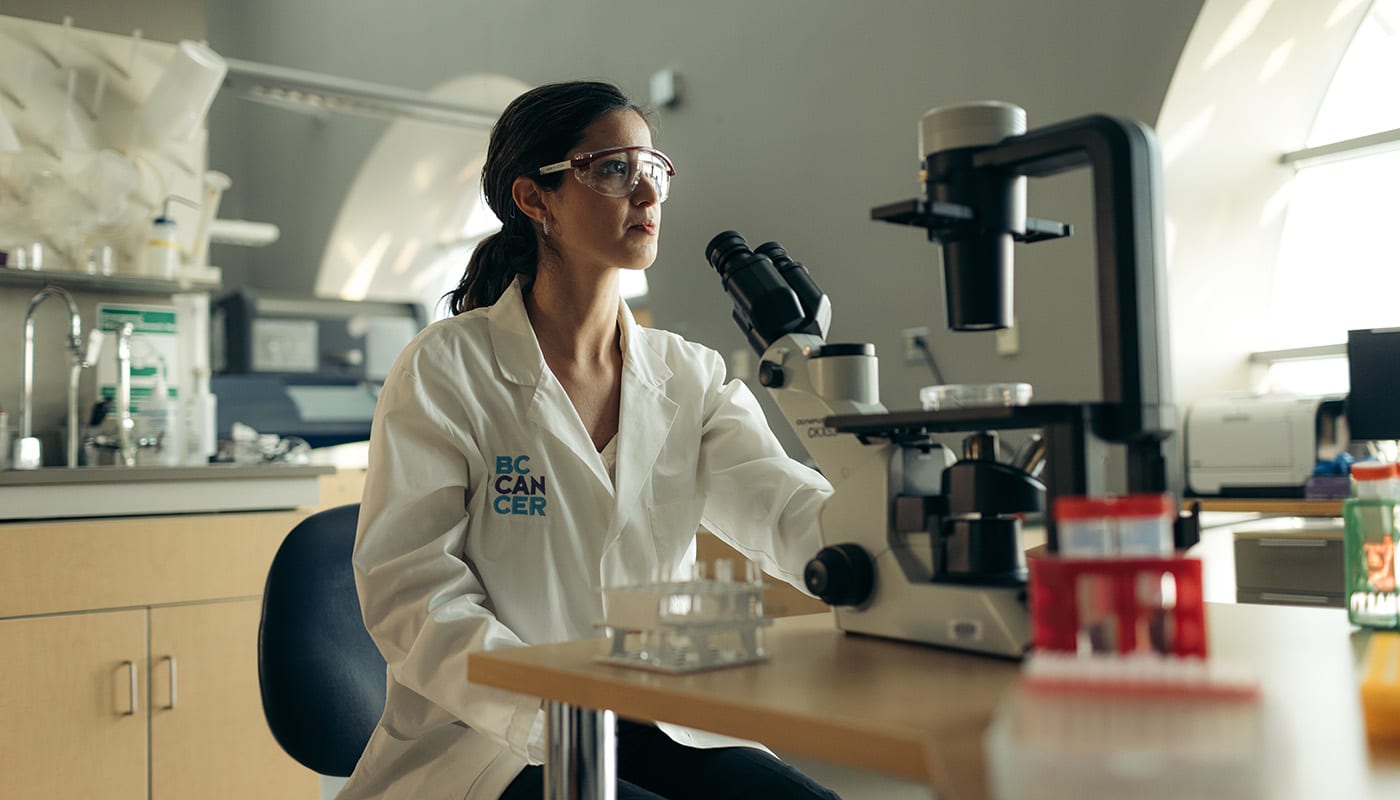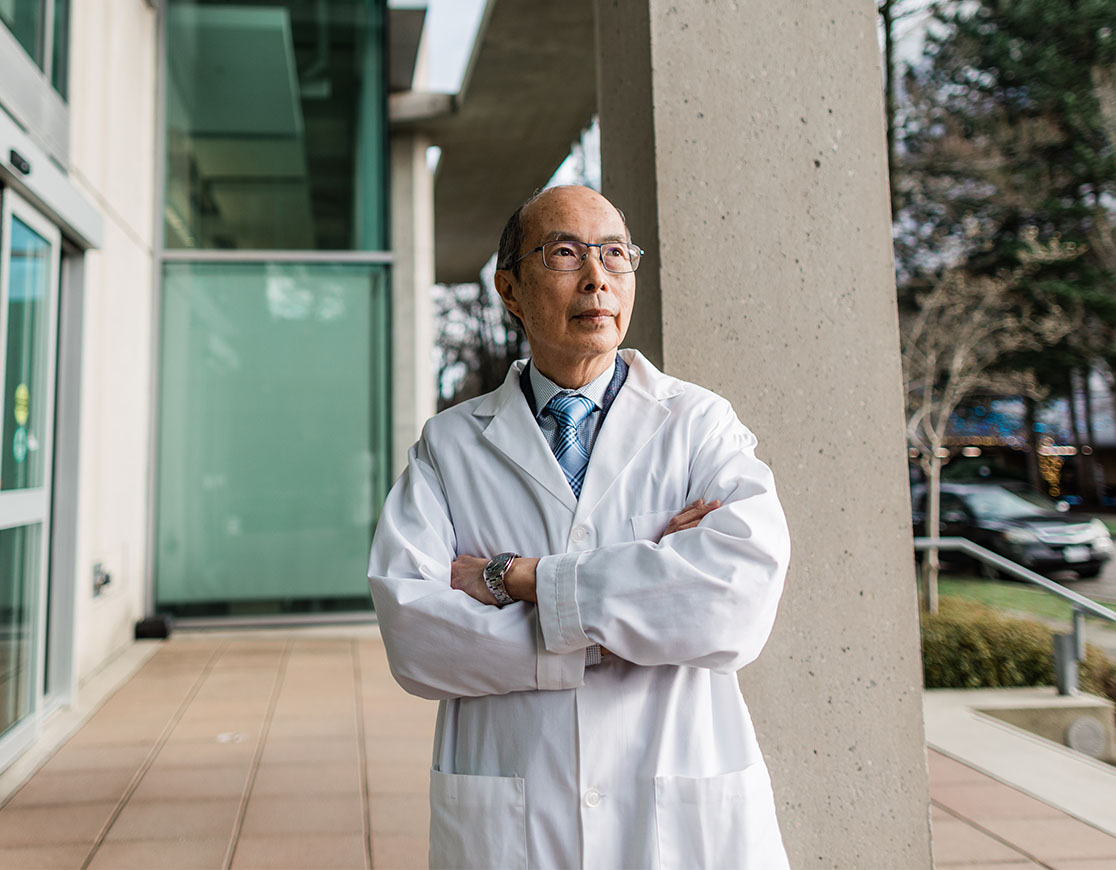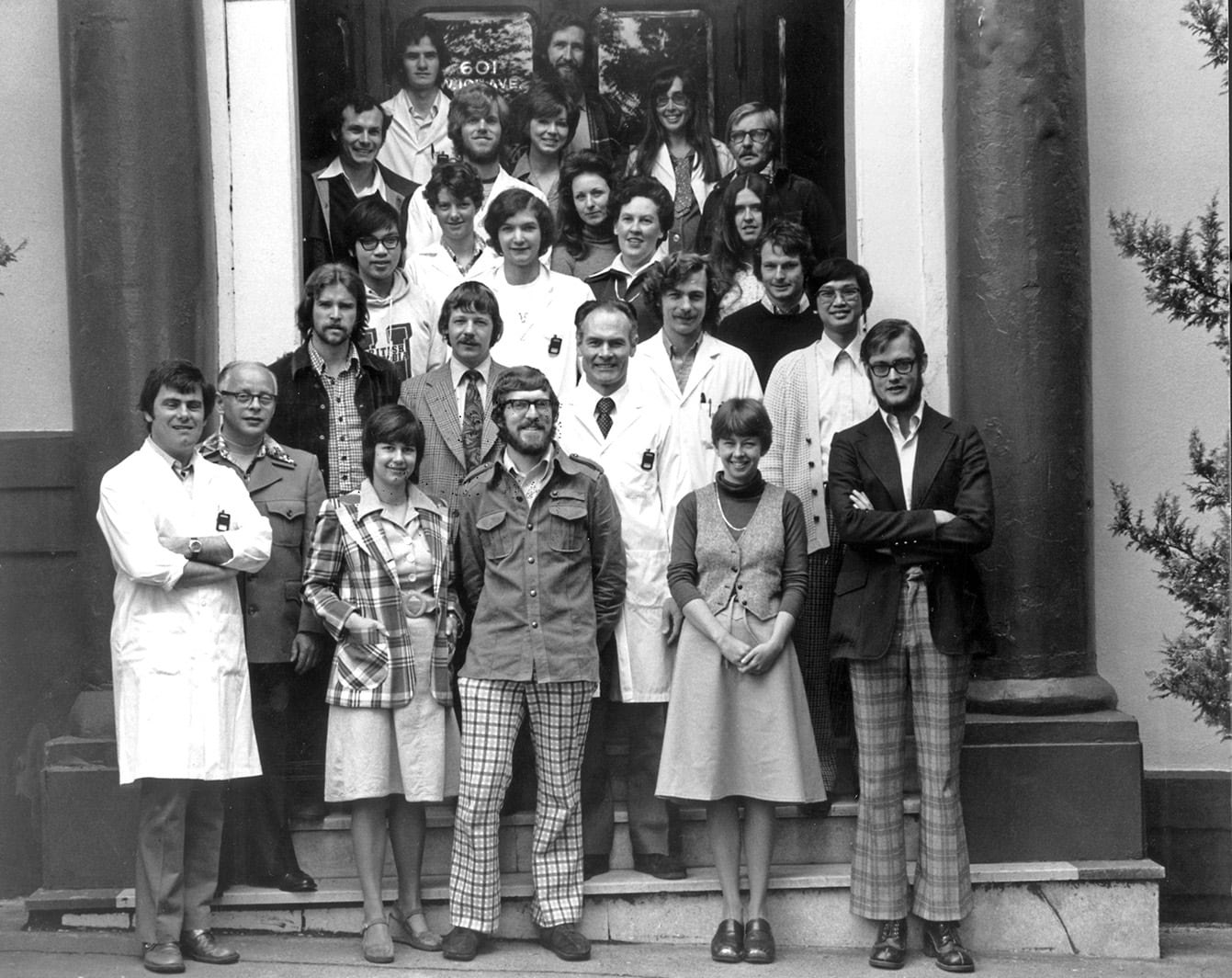90 Years of Discovery and Hope in B.C.: A Legacy of Innovation in Lung, Breast and Cervical Cancer
May 6, 2025
Found in Breast Cancer, Cervical Cancer, Lung cancer, Our History
From pioneering screening programs to world practice-changing discoveries, BC Cancer Foundation donor support has revolutionized care in three common cancers.

Cervical Cancer
Prior to the 1950s, cervical cancer was a major cause of death. Today, thanks to new innovative BC Cancer testing, it’s on track to disappear within two decades.
Past: In 1955, BC Cancer established the first cervical cancer screening program in the world, leading to a more than 70% decrease in incidence and mortality of cervical cancer.
Present: In 2024, led by Dr. Lily Proctor, BC Cancer launched Canada’s first cervix self-screening option. Informed by a BC Cancer Foundation-funded program investigating how to improve screening uptake in the Fraser Valley’s South Asian community, the self-swab kit offers women the choice to test at home for the human papillomavirus (HPV), the leading cause of cervical cancer.
Future: BC Cancer’s self-screening option is a giant leap forward in the global strategy of eliminating the disease by 2040. A more accessible, equitable test, it increases coverage by 20% in low-income, rural and remote communities, and in new immigrants, First Nations, Inuit and Métis — who, due to barriers to care, experience higher cases of cervical cancer.

Lung Cancer
Long thought of as solely a smoker’s disease, donor investment in BC Cancer research is helping reduce stigma and advance early detection for all high-risk individuals.
Past: In 2010, BC Cancer discovered that lung cancer in non-smokers (which accounts for 30% of cases in B.C.) is a completely different disease, prompting alternate diagnostics and treatments.
Present: In 2022, fuelled by almost $2 million in donor support, B.C. implemented Canada’s first provincial lung cancer screening program for eligible, high-risk individuals (people age 55-74, who have smoked for 20 years). It has since detected 74% of participants’ lung cancers at an earlier, more treatable stage.
Future: BC Cancer’s Breathomics Lab is harnessing artificial intelligence (AI) to develop a novel test which identifies chemical signatures in breath to detect early lung cancer and provide insight into how changes in the lung microbiome may indicate lung cancer development in non-smokers.
After discovering Asian women are more susceptible to lung cancer caused by air pollution, BC Cancer’s Dr. Stephen Lam is pursuing research into how genetics and environment affect risk to uncover new interventions for at-risk patients.
Donate today to advance BC Cancer’s life-saving research in cervical, lung, breast and other cancers.

Breast Cancer
A global leader in breast cancer research, BC Cancer discoveries have changed the way the world diagnoses and treats the disease.
Past: In 1988, BC Cancer established Canada’s first screening mammography program, reducing breast cancer incidences in B.C. by 25%.
In 2005, donor funding brought renowned U.K. scientist Dr. Sam Aparicio to lead BC Cancer’s breast cancer research program. His team’s subsequent breakthroughs include the genetic decoding of triple negative breast cancer (TNBC) — an aggressive form which accounts for 25% of all breast cancer deaths — and reclassifying breast cancer into 10 different subtypes. These transformational discoveries acted as a springboard in developing new targeted drugs and treatments tailored to individual patients.
Present: Thanks to donor-fuelled advances, the survival rate for early-stage breast cancer in B.C. is 92%. A recent BC Cancer discovery of cancer-like mutations in healthy breast cells could pinpoint the early genetic origins of breast cancer, leading to a new understanding of risk and improved detection and prevention strategies. Preliminary findings from a donor-supported study examining circulating tumour DNA (ctDNA) in the bloodstream of TNBC patients are proving highly effective in detecting relapse up to two years before it occurs.
Future: With donor support, BC Cancer is launching genetic testing for all breast cancer patients under 60. Enhanced identification of individuals with BRCA gene mutations — which can increase the risk of developing breast cancer to 70% — is lifesaving for families impacted by the disease.

90 Years of Discovery and Hope in B.C.
Since 1935, the BC Cancer Foundation has been transforming cancer research and care, and bringing life-saving treatment closer to home for people across B.C.
Learn More

